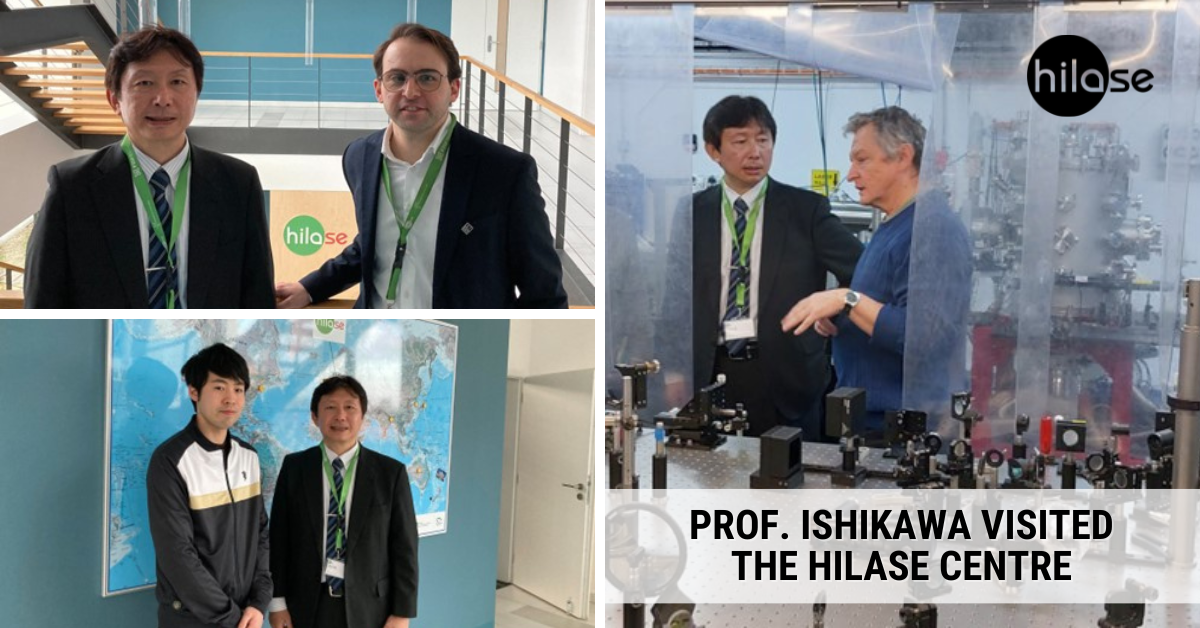Prof. Kenichi Ishikawa from the University of Tokyo (Japan) visited the HiLASE Centre on March 8th 2024, giving a seminar.

After presenting his talk on “Building artificial intelligence and science-and-theory-based simulations toward cyber-physical-system (CPS) laser manufacturing”, Prof. Ishikawa visited the E3 laboratory with femto/picosecond laser processing stations and time-of-flight spectrometry (Department of Scientific Laser Applications, led by Prof. Nadezhda M. Bulgakova), as well as the clean laboratories where high-energy laser systems are developed (Advanced Laser Developments, led by Dr. Martin Smrz).
Seminar abstract
Laser processing is a versatile technique with numerous adjustable parameters, such as wavelength, pulse duration, and pulse energy. Currently, these parameters are optimized through human experience and intuition. However, to address the growing need for mass customization in the emerging super smart society, we aim to replace these methods with data-driven approaches, artificial intelligence (AI), and scientifically grounded theories that highly integrate cyberspace and physical space (CPS). To facilitate smart production, we develop CPS laser manufacturing that propose optimal processing parameters based on simulations in cyberspace.
Laser processing is a complex, cutting-edge field that spans multiple scales and disciplines. For example, how atoms, molecules, and materials behave under intense laser irradiation is at the forefront of atomic, molecular, optical, and condensed matter physics, involving highly nonlinear, dynamical processes. One of our focuses is to understand and simulate these strong laser-matter interactions by employing various techniques, including AI and even starting from the first principles of quantum mechanics. We have established a nationwide STELLA network of approximately 100 researchers, comprising both theoreticians and experimentalists, with the latter specializing in advanced data collection and operando measurement techniques.
The deep learning simulators developed within our network are capable of accurately and efficiently replicating the laser drilling process in physical space. We are currently developing and have developed a range of innovative methods to precisely calculate the laser-driven electron dynamics and energy transfer from the laser to the materials. Furthermore, for example, by combining first-principles and molecular dynamics calculations, we can quantitatively reproduce the ejection of atoms from laser-irradiated surfaces. On a macroscopic scale, our research also involves the study of multiphysics modeling for complex thermal multiphase flows, which provides valuable guidance for additive manufacturing.








